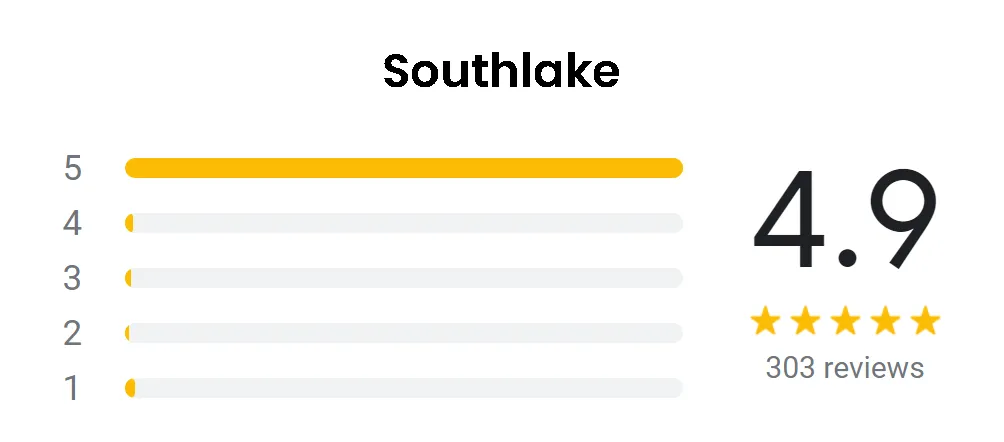
Landcare Research conducted an in-depth survey of different wildlife biting and chew habits, diagraming bite marks for many different wildlife in a 60page report. In this blog, our experts from Critter Stop will summarize their findings to help our Dallas residents to identify rodent bite marks!
From our experience at rodent removal, we can be sure that their teeth never stop growing. So just like teething babies that like to have something in their mouth at all times, rodents relieve pain by chewing. This is why they will chew on wood, plastic, and everything in between. They are not necessarily chewing for food. They may be chewing to gain entry or simply because it feels good on their teeth.
Rodents will often target materials that may provide a water source, such as a dish washer or refrigerator water line. If they are not seeking out water or attempting to gain entry, they usually target softer materials that feel good on their teeth, such as rubbery wires or foam insulated hoses. This is one reason why addressing rodents in your attic is so important – it is often just a matter of time before they cause electrical damage.
Identifying mice bite marks requires a fine eye for detail due to their small size, our expert team at Critter Stop has provided rodent removal services so many times in the Dallas-Fort Worth area, that is easy for us to know what type of rodent you have. Mice have large incisor teeth, with the remaining molars in the back of the jaw. As a result, their chew marks are characterized by incisor-pair impressions. Mice, due to their smaller size, typically only nibble on materials and cause much less damage than rat
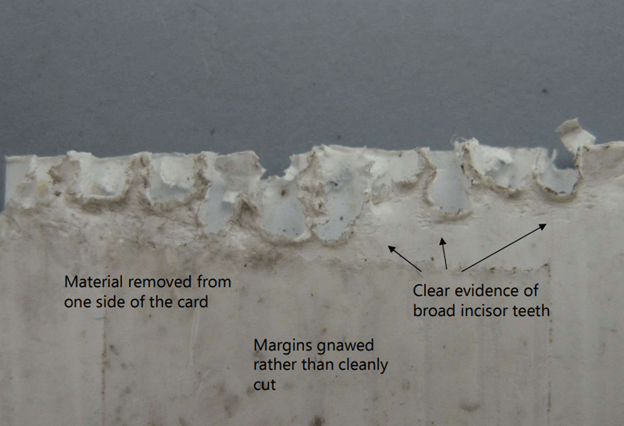
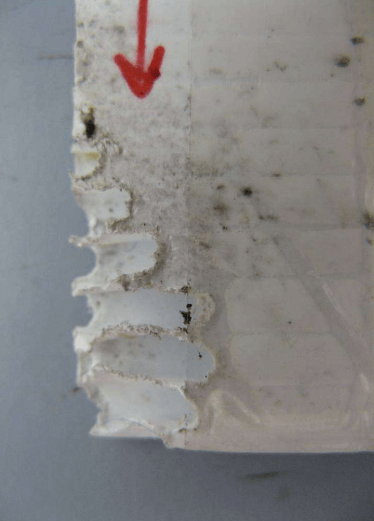
Rats are very similar to mice in many ways, particularly in regards to their body structure and their habits. Rats have leave similar incisor-pair marks, but they are able to remove much more material and do much more damage. Rats are more likely to chew holes through materials or chew through it altogether. Rats also tend to leave more jagged edges along the materials that they chew while mice tend to leave smoother edges.
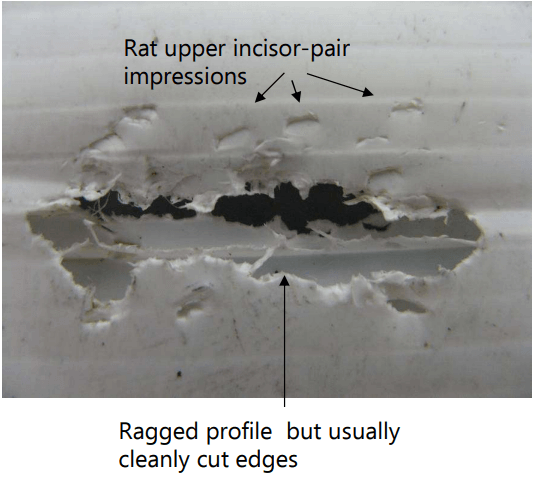
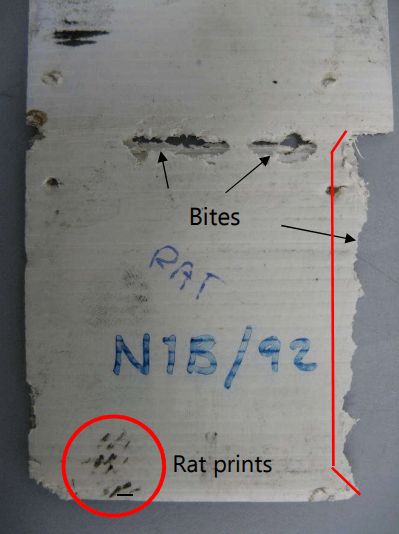
If you notice rodent bite marks in your home or attic and want a permanent solution to your rodent issue, give Critter Stop a call. We offer free inspections and estimates and can tell you exactly what is going on and what we would recommend. We have helped countless customers evict their furry little friends with great results – just check out our reviews and see for yourself! Call us now at 214 234-26-16 and we will be ready to give you a quick and effective solution to your rodent problems.
Visit our Critter Library and learn more about our furry friends
